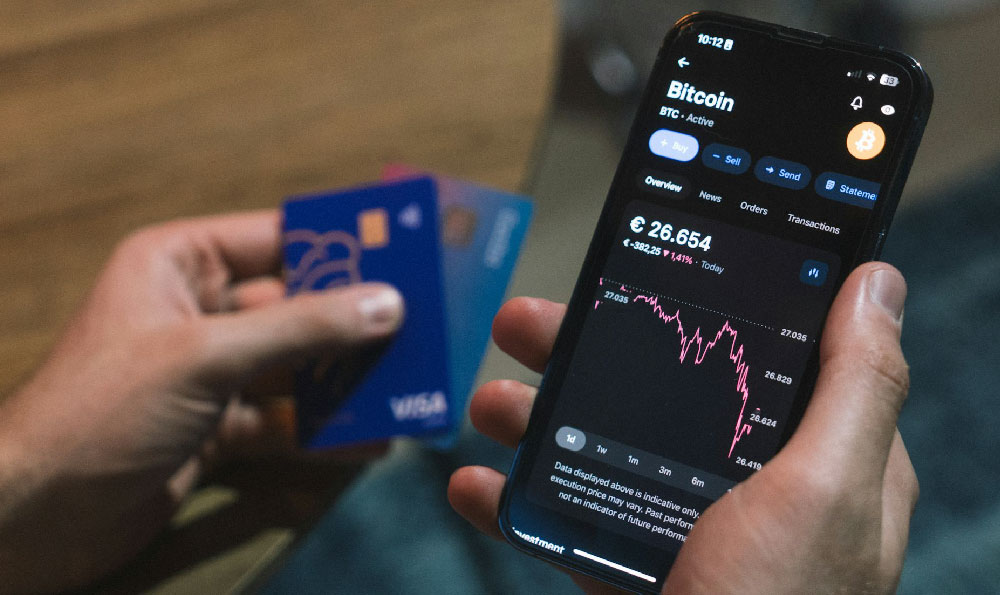Unlocking Financial Opportunities on Facebook: A Strategic Guide to Monetization and Risk Avoidance
Facebook remains one of the most dynamic platforms for generating income in the digital age, offering a unique blend of user engagement, advertising potential, and community-building capabilities. While the idea of monetizing a Facebook page may seem straightforward, success requires a nuanced understanding of both content strategy and financial principles. With over 3 billion monthly active users, the platform’s vast reach combined with its targeted advertising tools provides fertile ground for entrepreneurs and content creators to explore diverse income streams. However, navigating this landscape demands careful planning, market analysis, and a balance between growth and risk management.
Diversifying Revenue Sources Through Advertising Tools

Facebook’s advertising ecosystem is one of its most valuable assets for monetization. By leveraging the platform’s ad tools, creators can monetize their pages through sponsored posts, affiliate marketing, and targeted promotions. Understanding the difference between cost-per-click (CPC) and cost-per-action (CPA) models is crucial. For instance, CPC is ideal for driving traffic to a product page or website, while CPA focuses on incentivizing specific actions such as purchases or sign-ups. To maximize profitability, it’s essential to analyze metrics like engagement rate, conversion rate, and return on ad spend (ROAS). High-quality visual content and precise audience targeting can significantly improve ad effectiveness. Additionally, utilizing Facebook Pixel allows for detailed tracking of user behavior post-click, ensuring campaigns are optimized for long-term value.
Content Creation as a Core Pillar of Monetization
High-impact content remains the foundation of any successful Facebook page. Whether through video tutorials, product reviews, or niche-specific guides, creating valuable, shareable content fosters organic growth and attracts a loyal audience. A key consideration is to align content with audience interests and market trends. For example, content related to cryptocurrency, digital marketing, or lifestyle topics often sees high engagement and monetization potential. Strategic use of hashtags, timely posting schedules, and driving traffic to external platforms (such as a website or social media shop) can enhance revenue opportunities. Moreover, leveraging Facebook Live sessions allows for real-time interaction, building trust and increasing sales conversion.
Turning Engagement into Direct Sales Through Social Commerce
Social commerce has emerged as a powerful tool for converting Facebook page followers into paying customers. By integrating product listings with Facebook Marketplace or using third-party tools like Shopee or Amazon sellers, creators can facilitate seamless transactions within the platform. Pricing strategy is a critical factor—competitive pricing with a clear value proposition can drive sales, while dynamic pricing adjustments based on market demand ensure profitability. Furthermore, understanding customer psychology and tailoring promotional strategies, such as limited-time offers or referral bonuses, can significantly boost conversion rates. Tracking performance through analytics tools ensures that each campaign is evaluated for its effectiveness and refined accordingly.
Balancing Growth and Risk: A Prudent Approach to Online Income
While the potential for profit is high, the fast-paced nature of online earnings on Facebook requires a cautious approach to risk management. One key strategy is to avoid overextending resources by focusing on sustainable growth rather than short-term gains. Diversifying income streams ensures that a single failure in one area doesn’t jeopardize the entire business. For instance, combining advertising revenue with affiliate marketing and social commerce provides a more stable income model. Additionally, monitoring financial health through regular budget reviews and profit analysis helps in identifying inefficiencies early. Building a strong brand identity also reduces risks associated with market fluctuations, as loyal followers are less likely to abandon the page during downturns.
Optimizing for Monetary Growth via Community-Driven Activities
Facebook pages thrive on community engagement, which can be leveraged for monetization through exclusive content, member-exclusive deals, or paid courses. Creating a sense of urgency or scarcity, such as offering limited-time access to premium content, encourages followers to take action. Additionally, cross-promoting with other creators or participating in niche-specific forums can expand reach without compromising content quality. Collaborative efforts often lead to mutual growth and increased monetization potential. However, maintaining a consistent quality standard is vital to avoid alienating the audience. Paid subscriptions, for example, work best when the content justifies the cost and aligns with the audience’s expectations.
Evaluating Market Trends and Adapting Strategies
The digital landscape is constantly evolving, and staying attuned to market trends is essential for sustained success. Concepts like the metaverse, AI-driven content creation, and decentralized finance (DeFi) are reshaping how users interact with online platforms. For example, integrating DeFi concepts into content can attract a specific audience interested in blockchain and cryptocurrency. Similarly, exploring the intersection of AI and Facebook marketing allows for personalized advertising and data-driven decisions. Staying informed through industry reports, expert analysis, and competitor activity ensures that creators remain ahead of the curve while minimizing risks associated with outdated strategies.
Identifying and Avoiding Common Pitfalls on Facebook
Despite its advantages, Facebook presents unique challenges that require vigilance. One common pitfall is the overreliance on viral content, which may not yield long-term profitability. Conversely, underestimating the cost of maintaining a page can lead to financial strain. Structural issues, such as poor page design or lack of user-friendly navigation, often deter potential customers. High-quality visuals and intuitive layout are critical for creating a strong first impression. Additionally, legal risks, such as copyright infringement or advertising regulations, must be avoided. Proper legal compliance ensures that monetization efforts are sustainable without facing penalties or legal consequences.
The Power of Niche-Specific Content and Targeted Outreach
Niche markets offer a more focused approach to monetization, attracting highly engaged audiences. For example, content targeting cryptocurrency investors or digital marketers tends to have higher conversion rates than broad, generic advice. Targeted outreach, such as engaging with groups or using Facebook ads tailored to specific demographics, allows for refined marketing strategies. A/B testing different content formats and messaging strategies provides valuable insights into what resonates with the audience. Additionally, focusing on long-term audience retention rather than one-time engagements ensures a steady revenue stream. Collaborative efforts within niche communities also create new opportunities for cross-promotion and mutual growth.
Financial Planning and Sustainable Monetization Strategies
Long-term success on Facebook hinges on robust financial planning and sustainable monetization strategies. Diversifying revenue streams ensures that the income remains unaffected by fluctuations in a single market. Careful budget management, including tracking advertising expenses and content creation costs, allows for informed decision-making. Additionally, reinvesting a portion of profits into expanding the page’s reach or improving content quality ensures continuous growth. Building a personal brand is equally important—establishing credibility through quality content reduces dependency on viral trends. Regular audits of financial performance, combined with an understanding of market trends, ensure that monetization efforts remain aligned with both user expectations and financial goals.
In conclusion, generating income from a Facebook page requires a combination of strategic content creation, effective monetization techniques, and meticulous risk management. By optimizing advertising campaigns, leveraging social commerce, and engaging with niche communities, creators can unlock significant financial opportunities. However, the key to sustained success lies in adaptability, staying informed about market trends, and maintaining a strong focus on user trust and brand integrity. With the right approach, Facebook can be a valuable tool for both personal and business growth in the digital economy.












